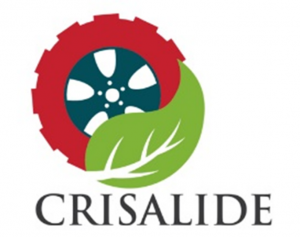Title: CITY REPLICABLE AND INTEGRATED SMART ACTIONS LEADING INNOVATION TO DEVELOP URBAN ECONOMIES
Acronym: CRISALIDE
Funding: ERANET RUS.PLUS 2017, PN III – CooperareaEuropeană şi Internaţională – Subprogram 3.2 – Orizont 2020
Lead Applicant: Southern Urban Planning Center (Russia)
Project partner: URBASOFIA
Duration: 24 month
Website: under construction



About the project
CRISALIDE focuses on the enhancement of long-term collaboration in the field of research and innovation among researchers, companies (technology providers) and the public sector through the design and implementation of a Decision-Making Tool. The consortium members RU, RO, A, GR from the Era.Net Rus Plus arena are skilled experts (researchers, planners and technology developers) will ensure through WP activities the smooth implementation of the project.
CIRSALIDE through its methodology and participatory activities will develop a stable, engaged stakeholder a group, which will assist in the establishment of the innovative development schemes (IDS) in four domain: energy, environment and climate change; social innovation and ICT, new and emerging technologies; ICT and culture and tourism, agri-food, cultural heritage; Based on the IDS schemes stakeholders can match their business interest with each other and find new partners for R&D activities. Furthermore, the IDSs will be the basis of the IDMT online collaboration platform, which ensures the sustainability of the project due to the constant business matching and decision-making processes.
Major expected results of the project will be engaged stakeholder network, efficient and effective IDMT and increased number of collaboration in the field of R&D and innovation. The results and the impacts are organized in three innovation domains:
- organizational innovation(such as new niches for local, city-based private sector to boost R&D and innovation activities, policy impact to reinforce local and national related policies about collaboration in the field of R&D and innovation),
- technological innovation and social innovation (enhanced Local Identity to improve social capital, increased climate and environmental awareness to favour communities preparedness, increased ICT development awareness to enhance local economics)
Project’s objective
Development of a decision support system for urban environment management that will be used by representatives of state authorities and local governments, enterprises and organizations, as well as individuals in the field of sustainable development, social innovations, information and communication technologies based on modern intellectual methods and geo-information systems to improve efficiency of urban environment management and cost reduction in planning at different levels.
CRISALIDE’s main results will be the following:
- Foster integration by supporting balanced capacities for cooperation at all institutional and stakeholders levels, and to merge results into a unique tool of governance promoting innovative services and products.
- Implement joint actions, supporting the participation of local groups in urban spaces planning, through valorisation and exploitation of the ICT use and Knowledge Economy related products and services
- improve knowledge and skills within the involved city with regard to the topic of the project and also to learn from the transnational network valuable information for future projects
- Attain valuable experience and know-how in supporting participatory projects through e-platforms and setting up the cities’ database in a way accessible to the public and mainly to city users and tourists
- Develop experimental zones with a focus on public spaces and services and on hybrid participation, and replicate / upscale the methodology and innovations locally in other public spaces or at a larger scale, through knowledge transfer to urban planners and e-city specialists
- For stakeholders, developers, investors, institutions, to “think outside the box” on various urban development topics and to adopt new methods and tools for improving their local activities and development.
- Implement public policies necessary to cover the aim theme and its two fundamental challenges: Create knowledge and innovative tools that generate sustainable and efficient management models
- Access to finance schemes, new business models in the field of R&D and innovation.
- Improvement of accessibility and social cohesion support
